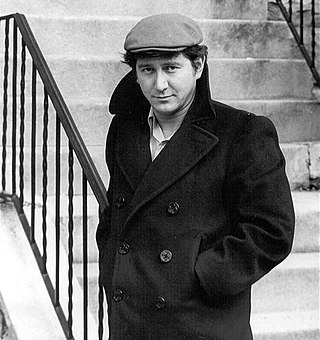
Philip David Ochs was an American songwriter and protest singer. Ochs was known for his sharp wit, sardonic humor, political activism, often alliterative lyrics, and distinctive voice. He wrote hundreds of songs from the 1960s to early 1970s and released eight albums.

...But Seriously is the fourth solo studio album by English drummer and singer-songwriter Phil Collins. It was released on 20 November 1989 in the United Kingdom by Virgin Records and by Atlantic Records in the United States. After Collins finished touring commitments with the rock band Genesis in 1987, the group entered a four-year hiatus, during which Collins starred in the feature film Buster (1988). By the spring of 1989, Collins had written material for a new solo album, which addressed more serious lyrical themes, like socio-economic and political issues, as opposed to his previous dance-oriented album, No Jacket Required (1985).
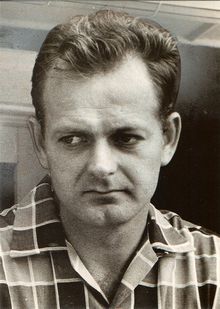
William Lewis Moore was a postal worker and Congress of Racial Equality (CORE) member who staged lone protests against racial segregation. He was assassinated in Keener, Alabama, during a protest march from Chattanooga, Tennessee to Jackson, Mississippi, where he intended to deliver a letter to Governor Ross Barnett, supporting civil rights.

All the News That's Fit to Sing was Phil Ochs's first official album. Recorded in 1964 for Elektra Records, it was full of many elements that would come back throughout his career. It was the album that defined his "singing journalist" phase, strewn with songs whose roots were allegedly pulled from Newsweek magazine. It is one in a long line of folk albums used to tell stories about everyday struggles and hardships.
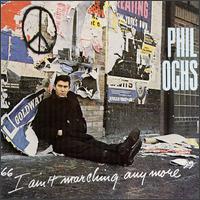
I Ain't Marching Any More is Phil Ochs' second LP, released on Elektra Records in 1965.
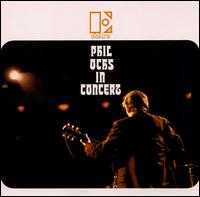
Phil Ochs in Concert is Phil Ochs' third long player, released in 1966 on Elektra Records. Despite its title, it was not entirely live, as several tracks were actually recorded in the studio, owing to flaws in the live recordings made in Boston and New York City in late 1965 and early 1966. The album's producers retained the essence of a live album by including song patter and audience reactions between and during the songs. Phil Ochs in Concert features many of the folksinger's most enduring songs and represents the culmination of Ochs' folk career, the last of his original albums to be all-acoustic.
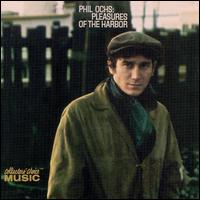
Pleasures of the Harbor is Phil Ochs' fourth full-length album and his first for A&M Records, released in 1967. It is one of Ochs's most somber albums. In stark contrast to his three albums for Elektra Records which had all been folk music, Pleasures of the Harbor featured traces of classical, rock and roll, Dixieland jazz and experimental synthesized music crossing with folk, in hopes of producing a "folk-pop" crossover.

Sings For Broadside, alternatively known as Broadside Ballads, Vol. 10, was a 1976 compilation of songs that Phil Ochs had recorded for Broadside Magazine as demonstration recordings or at benefit shows for them. Initially, Ochs had hoped for the magazine to release one single concert, but when the material he presented to them came up far too short for a full LP and not featuring several of his best and well-known numbers, he suggested they splice on whatever they desired. The result was this album, which featured tracks recorded between about 1965 and about 1973.

The Broadside Tapes 1, alternatively known as Broadside Ballads, Vol. 14, was a compilation of demo recordings done by Phil Ochs for Broadside magazine in the early-to-late 1960s. Of the sixteen songs that appeared, ranging from the humorous to the depressing, all were new to listeners. It also included a song about the Profumo affair and it closed with a live cover of The Beatles' "I Should Have Known Better" featuring Eric Andersen on harmony vocals and harmonica.

Live at Newport is a 1996 compilation on Vanguard Records of folk singer Phil Ochs' three appearances at the Newport Folk Festival, in 1963, 1964 and 1966. Presenting twelve tracks that also appear on his first, second, third, fourth and fifth albums, Ochs is at his peak as a folk singer throughout, singing anti-war songs alongside those espousing civil rights and worker's rights, and showcasing some more introspective numbers that would be dramatically rearranged on the fourth and fifth albums.

The Early Years is a compilation of seven recordings Phil Ochs made for a Vanguard compilation in 1964 and twelve made at three Newport Folk Festivals in 1963, 1964, and 1966, the latter tracks previously released on the 1996 compilation Live at Newport.
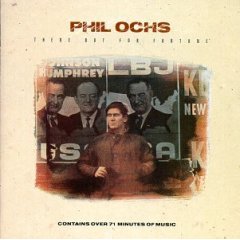
There but for Fortune was a 1989 compilation that summed up the three albums that Phil Ochs recorded for Elektra Records between 1964 and 1966. The album drew heavily from the third, presenting ten of its eleven tracks, and presenting six and five respectively from the first and second.
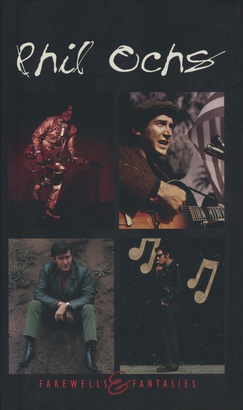
Farewells & Fantasies is the 1997 posthumous box set of the work of singer/songwriter Phil Ochs, chronicling his life and career in music from 1964 through 1970. With its non-chronological running order, it plays like three separate albums, each showcasing a different side of Ochs. The compilation was produced by Gary Stewart, Michael Ochs and Meegan Lee Ochs. Liner notes include a foreword by Meegan Lee Ochs, "The Sound of Freedom Callin'" by Michael Ventura and "Song of a Soldier: The Life and Times of Phil Ochs" by Mark Kemp, track-by-track explanations by Ben Edmonds, discography, selected bibliography, and many photographs, some of which are from the family's private collections. The box set is dedicated to a friend, co-writer, and inspiration to Phil Ochs, Bob Gibson, who died while the box set was in production. Its title comes from the back of Ochs' LP Tape from California.
"Banks of the Ohio", also known as "Down on the Banks of the Ohio" and "I'll Never Be Yours", is a 19th-century murder ballad, written by unknown authors. The lyrics tell of "Willie" who invites his young lover for a walk during which she rejects his marriage proposal, and once they are alone on the river bank, he murders the young woman.

(guitar, vocal) is a 1976 album by Richard Thompson. It was released by Island Records as a career retrospective after he and his wife Linda had gone into semi-retirement from the business of making and performing music following the release of Pour Down Like Silver (1975).

"Milk and Toast and Honey" is a song by Swedish pop music duo Roxette, released on 10 September 2001 as the third and final single from their seventh studio album, Room Service (2001). It was the only single from the album to be released in the United Kingdom, where it peaked at number 89. The song performed better elsewhere, becoming the album's highest-charting single in Portugal, and Roxette's longest-charting single in several years in both Sweden and Switzerland.
"Oxford Town" is a song written by American singer-songwriter Bob Dylan in 1962. It was recorded in Columbia's Studio A on December 6, 1962, for his second album, The Freewheelin' Bob Dylan.

On My Way is a 2010 album of previously unreleased Phil Ochs performances, originally recorded in 1963 by Roy Connors of The Highwaymen.
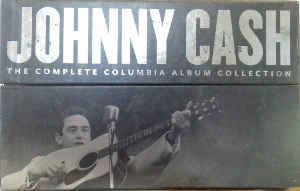
The Complete Columbia Album Collection is a box set by country singer Johnny Cash, released posthumously in 2012 on Columbia Records and Legacy Recordings.
"Here's to the State of Mississippi" is a civil rights protest song by Phil Ochs, an American topical singer and songwriter in the 1960s. Ochs is best known for his anti-war and freedom songs. "Here's to the State of Mississippi" was released in 1965 as the last track on his album I Ain't Marching Anymore. The song criticizes the state of Mississippi for its oppression of African Americans. It describes how Jim Crow laws and white supremacy in the South maintained the inequality of African Americans in states such as Mississippi. "Here's to the State of Mississippi" touches on segregation, corrupt and biased school systems, the frequent murders of African Americans and civil rights activists and the crookedness of government officials who ignored or collaborated in the murders.

















